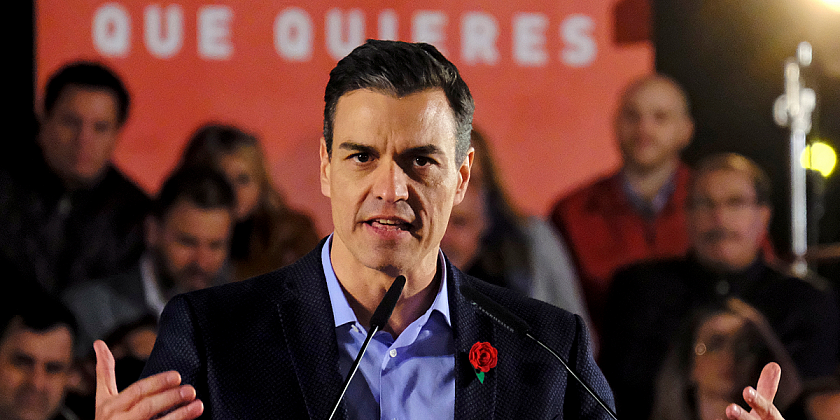News
-
COVID 19
22nd April 2020 -
Big wins – PSOE strikes back and defeats PP
3rd May 2019 -
Benidorm – Sold out
9th April 2019 -
Gran Alacant, Santa Pola, Alicante
30th November 2018
Articles
Big wins – PSOE strikes back and defeats PP
3rd May 2019PSOE – Sunday’s election changed both houses of the legislative branch in Spain and the governing party is likely to remain in power. Remaining to be answered is, who won? Who lost? And what now?
PSOE Clenching power
PSOE emerge as the big winner of the election, ascertaining their power in government by advancing in both legislative branches of government. Winning a majority, 121 seats in the senate, and 123 in congress, respectively 78 and 38 more than the 2016 election. The coming government will presumably be led by Pedro Sanchez with the left-wing parties backing him.
Whether the strong advance of the PSOE party is a vote of confidence from the Spanish people, or a vote against opposition the conservative party Partido Popular, is not entirely clear. Public opinion has swayed against the conservatives of the PP and so voters have changed their pattern.
Partido Popular defeat
The leading opposition party Partido Popular (PP) suffered the largest defeat in the party’s history. Pablo Casado now leads a party less than half the size it was before the election. A fair assumption would be, that their shift to the right has resulted in a loss of centrist voters to Ciudanos and the more conservative right-wing voters to new party VOX. By all measures, the election was catastrophic for PP. At only 66 seats in congress now, and losing control in the senate, future influence will be limited.
In contrast to the PP the two other major players on the right side of the political spectrum both advanced significantly, likely attracting former PP supporters. Ciudanos advanced their political standing gaining 25 seats. The leader, Albert Rivera, has said that their next goal will be to oversee the coming government, as he has ruled out the possibility of joining forces with the PSOE during the campaign. VOX, the relatively new, right-wing gained traction during the campaign, storming into congress winning 24 seats. Seemingly impressive, it was seen internally as not much of a cause to celebrate. Party leadership and general polling had predicted anything from 27 to 39 seats in congress, and so they fall short of expectations. The first time in a position of central power, VOX now moves into another phase of the party’s life.
What now?
With a split vote, and not one party emerging with a clear majority, there seems to be a sense of what now? Congress and the political parties now enter the next phase of trying to form government. The most likely outcome will be one where Pedro Sanchez remains prime minister. The constellation of his next government is, however, uncertain. One possibility they could pursue is that of support from the Podemos and the smaller left-wing, non-independence parties. This would leave a potential government dependent on an abstinent from other parties, since they would be 1 seat shy of an absolute majority (176 seats).
A way of avoiding this scenario could be to include the pro-independence parties. This form of government would put talks of independence on the agenda once more, risking political instability. If this is not preferred by major party leadership, they could well decide to have a coalition of solely the PSOE and Podemos, and they would still have to rely on the support of other parties to reach the absolute majority mark.
Spain now awaits the actions of the incoming congress and senate to see who will be governing and setting the political course for the years to come.
